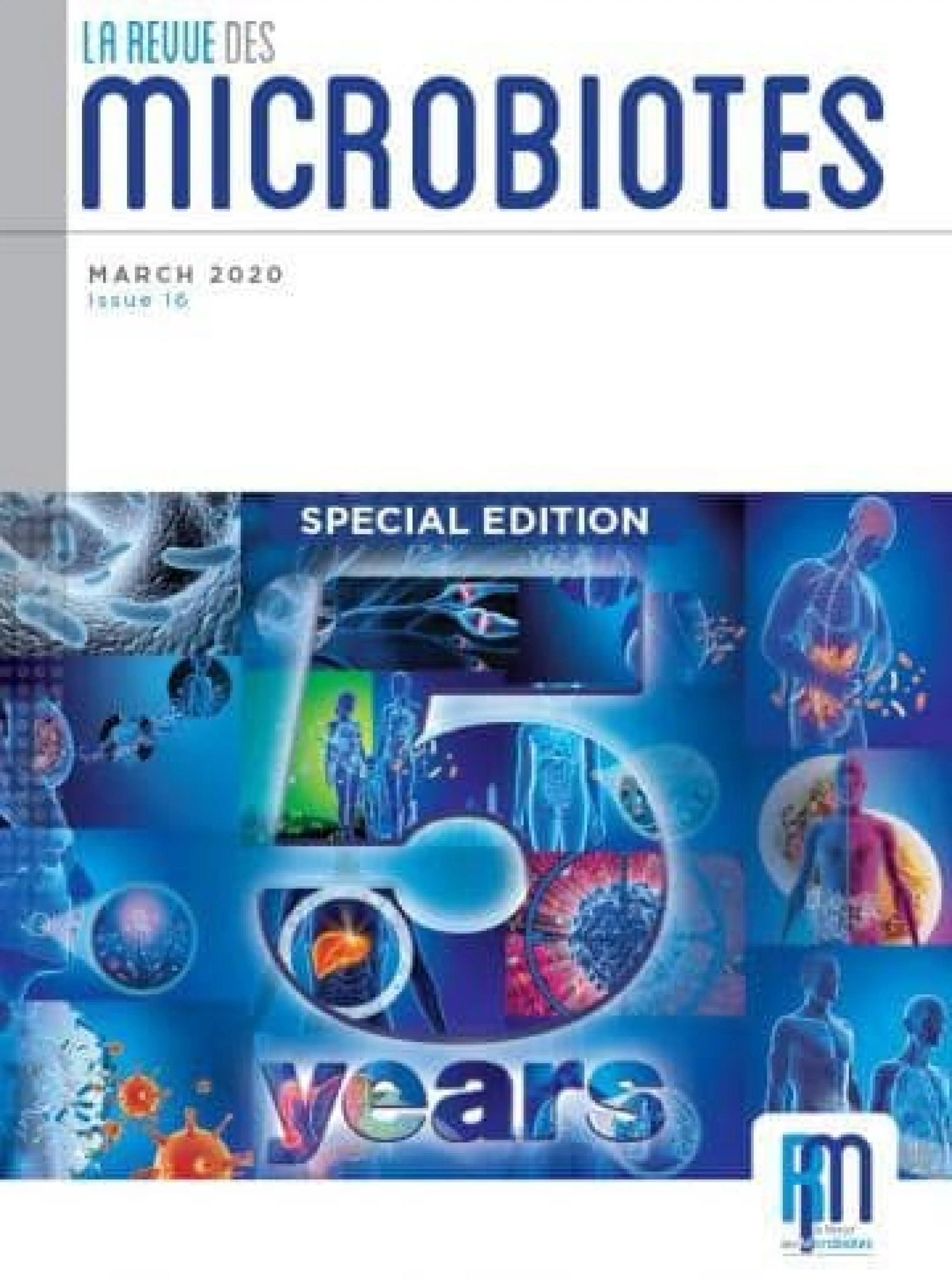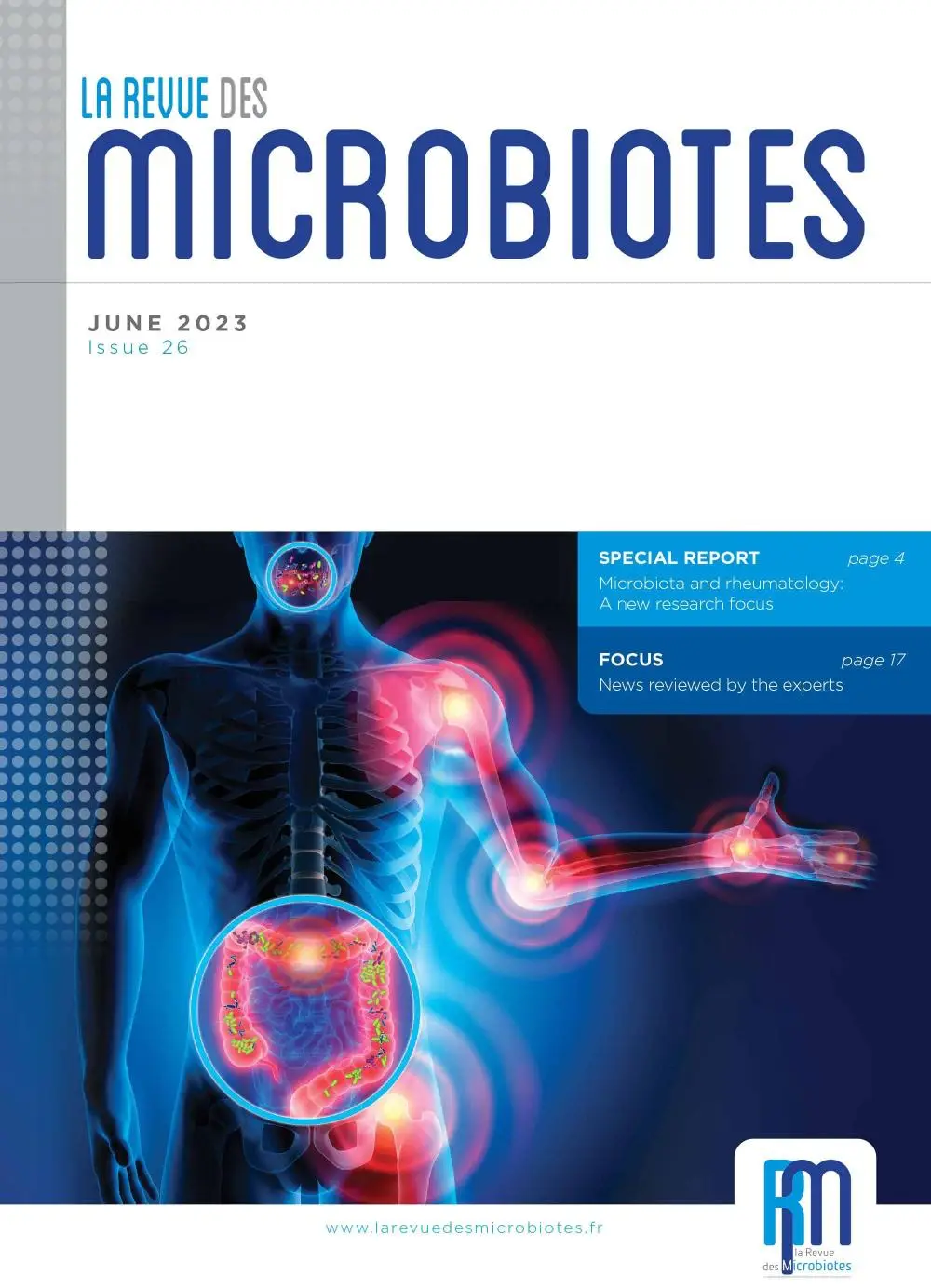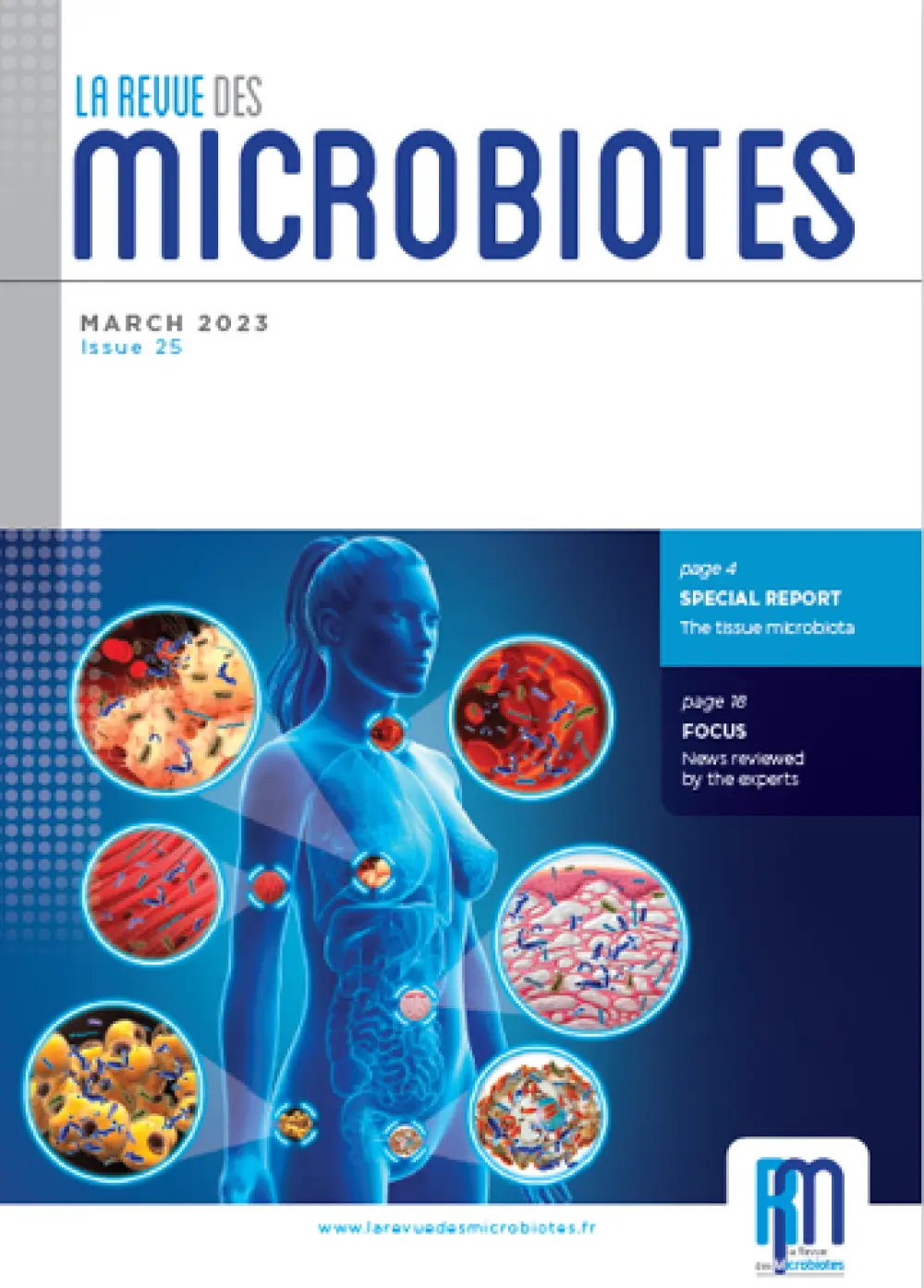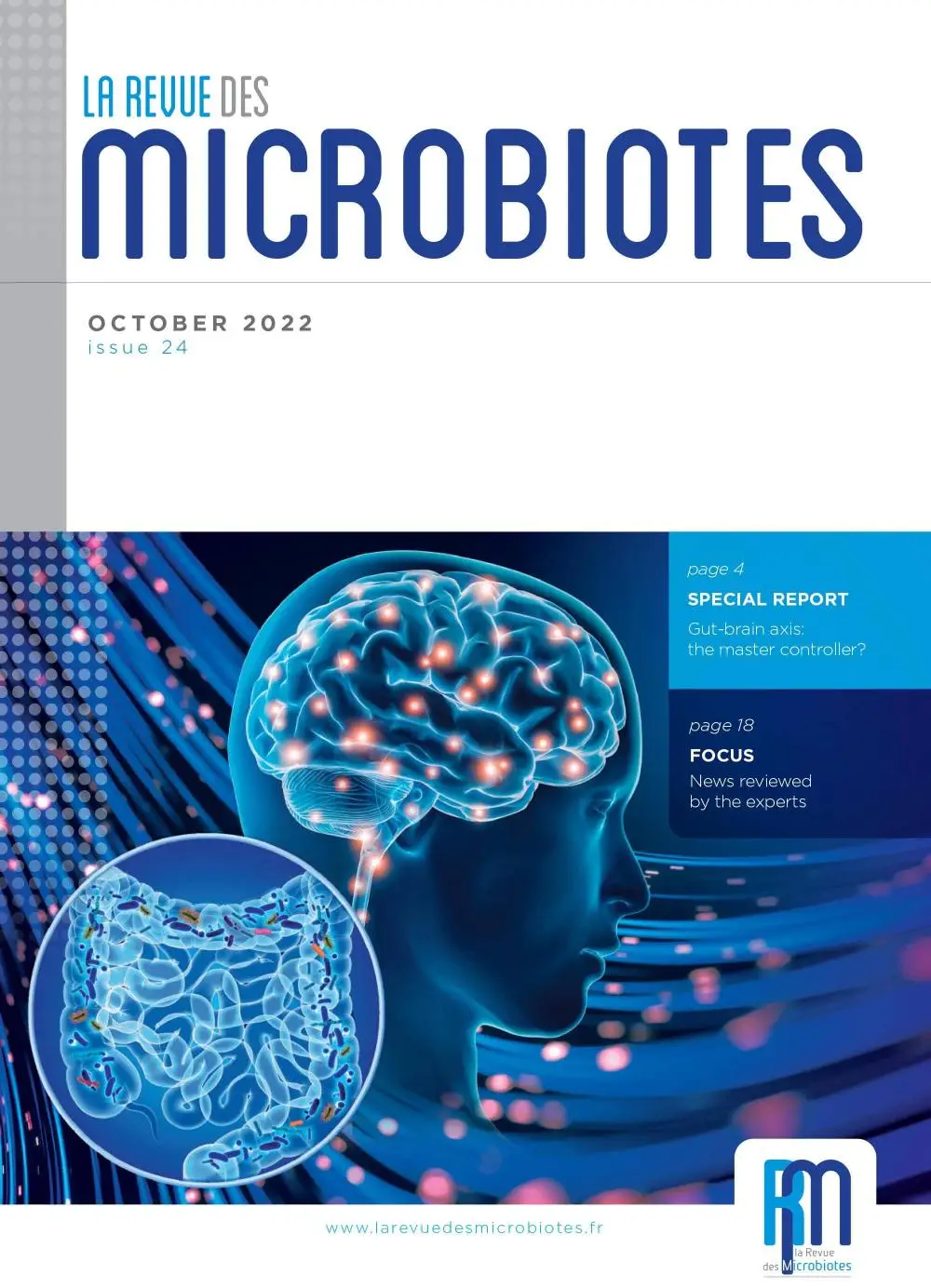Bäckhed in 20041 and later Gordon in 20062 revealed the connection between the gut microbiota and obesity. In 2007, Amar and Cani3 demonstrated a causal link between the translocation of bacterial fragments in tissues and diabetes. Since these first publications, subsequent research has described the diversity of the microbiotas we host and confirmed the presence of microbiotas in our tissues, and the role of bacterial translocation on our health is now better understood. In the field of cardiovascular and metabolic diseases, the role of intestinal immunity in interaction with the gut microbiota has been revealed for both diabetes and hypertension, paving the way for an aetiological treatment for what Reaven, for want of a better name, called syndrome X4 in 1998. In the field of cancer, the role of the gut microbiota in the tolerance and efficacy of immunotherapy has been reported, opening up new possibilities for precision medicine5. The role of tumour tissue dysbiosis in the prognosis of cancers like pancreatic cancer has also been established6. The physiopathological mechanism of this relationship has now been identified, paving the way for innovative therapies targeting the interaction between the host’s immunity and the bacteria present in the tumour. In a few short years, we have therefore expanded our very narrow and sterile view of the human body to embrace a new paradigm where the dialogue established from birth between our microbiota and our cells has a major influence on our health. Understanding and modulating this dialogue to our advantage is therefore set to be a major challenge for scientific research in the decade to come.
Good reading and good navigation!
1. Bäckhed F, et al. The gut microbiota as an environmental factor that regulates fat storage. Proc Natl Acad
Sci USA. 2004;101:15718-23
2. Turnbaugh PJ, et al. An obesity-associated gut microbiota with increased capacity for energy harvest. Nature.
2006;444:1027-31.
3. Cani PD, et al. Metabolic endotoxemia initiates obesity and insulin resistance. Diabetes. 2007;56:1761-72.
4. Reaven GM. Role of insulin resistance in human disease. Diabetes. 1988;37:1595-607.
5. Routy B, et al. Gut microbiota influences efficacy of PD-1-based immunotherapy against epithelial tumors.
Science. 2018;359:91-7.
6. Riquelme E, et al. Tumor Microbiota Diversity and Composition Influence Pancreatic Cancer Outcomes. Cell.
2019;178:795-806.

5 years Special Edition
Editoral
Table of contents
Special Report
- Gut microbiota analysis: the future of personalised medicine?Scientific committee : Philippe Gérard
- Gut microbiota and gastrointestinal disorders: from prevention to treatmentScientific committee : Stanislas Bruley des Varannes
- The microbiota: a link between cardiovascular and metabolic diseasesScientific committee : Jacques Amar
- Microbiota and gynaecology: an increasingly vast horizon with as yet undefined solutionsScientific committee : Jean-Marc Bohbot
- The emergence of the newborn gut microbiota: the lessons of the last five yearsScientific committee : Alexis Mosca
- Microbiota and immune dysfunction diseases: causes or consequences?Scientific committee : Cyrille Hoarau
- Lung microbiota, out of the shadowsScientific committee : Geneviève Héry-Arnaud
- Microbiota and neuroscience: the importance of the gut-brain axisScientific committee : Patrick Vermersch
- Taxonomy of the microbiota: the impact of innovative technologiesScientific committee : Bruno Pot
- Gut microbiota analysis: the future of personalised medicine?
Microbiota News
- Pull-out poster: 15 Revues des Microbiotes in summary; Gloss ary
In Brief
- Five years of Zoom in summary
The Microbiota Chronicle
- Interesting abstracts
Focus
- MetagenomicsScientific committee : Bruno Pot
- AllergologyScientific committee : Alexis Mosca
- NeonatologyScientific committee : Geneviève Héry-Arnaud
- PhysiopathologyScientific committee : Jacques Amar
- AutoimmunityScientific committee : Cyrille Hoarau
- NeurologyScientific committee : Patrick Vermersch
- Metagenomics
Scientific committee

Pr Geneviève Héry-Arnaud
PharmD, PhD. Microbiologist, INSERM Mixed Research Unit 1078, Brest University, Brest Regional and University Hospital

Pr Bruno Pot
PhD, Microbiologist, Brussels University

Pr Patrick Vermersch
MD, PhD. Neurologist, Lille University, Lille

Pr Jacques Amar
MD. Cardiologist, Toulouse University Hospital, Vaiomer scientific consultant, Labège.

Dr Jean-Marc Bohbot
MD, PhD. Infectious disease specialist, Institut Alfred Fournier, Paris

Pr Stanislas Bruley des Varannes
MD, PhD. Gastroenterologist, Digestive Diseases Institute, Nantes

Dr Philippe Gérard
PhD. Microbiologist, Micalis Institute, Jouy-en-Josas

Dr Cyrille Hoarau
MD, PhD. Immunologist and allergy specialist, Interdisciplinary Unit of Clinical Immunology and Allergy Studies, Regional and University Hospital, Tours

Dr Alexis Mosca
MD, Paediatrician, Paediatric Nutrition and Gastroenterology Department, Robert Debré Hospital, Paris















